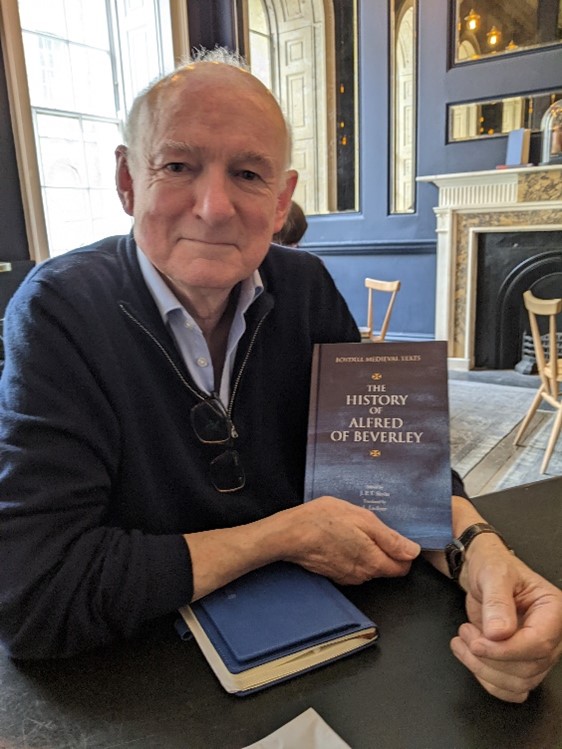Tips for Mature Scholars and Distance Learners
Posted by Helen Birkett
8 August 2023
Dr John Slevin, former Exeter PhD student and editor of the newly published History of Alfred of Beverley, completed his doctorate as a mature student and distance-learner. Beginning and completing your doctoral studies at a different stage in life to those fresh out of their undergraduate or postgraduate degrees has advantages, but also poses particular challenges – as does the decision to pursue your research away from your home institution. Drawing on his own experience, here John shares his tips for success for mature students and distance learners.
Benefits of mature study
- You already have the experience of working for many years and being able to troubleshoot and solve problems, which makes pursuing a PhD easier. You just need to be interested and invested in your topic – that will mean you really get into it!
The right supervisor
- Doing a doctorate means independent, self-motivated study: you’re on your own! So you need a good, helpful supervisor to support you – and to introduce you to other scholars, who can offer further advice on your work.
Scholarly ‘fun’
- As a mature student, you’re often doing a PhD for fun, which sets you apart from most younger PhD students who are doing it for career purposes. However, ‘doing it for fun’ was what most historical writing was before the discipline of History was professionalised in the nineteenth century, so you’re part of a long-standing tradition.
- Although mature students undertake PhDs for fun, you’re working alongside professionals and studying for a formal qualification – so you should try to make your work as scholarly as possible.
Challenges of distance learning
- The main challenge of distance-learning is that, being based away from your home institution, you don’t get a sense of being a member of the student community there. It’s not easy to recreate this sense of community elsewhere, but doing courses on palaeography or text editing can help you meet other people and join slightly different communities.
- You can also meet other like-minded researchers at conferences. Although these may seem like quite daunting events, organisers and attendees are usually very welcoming. And meeting these other researchers and hearing their papers is often very useful for your own project.
Keep researching!
- Doing a PhD can be a thoroughly motivating and enriching experience – and it doesn’t need to end there! You can continue with your studies afterwards. It’s been really satisfying to pursue a project from Masters to PhD to published edition.
As discussed with Helen Birkett
Share
Related
